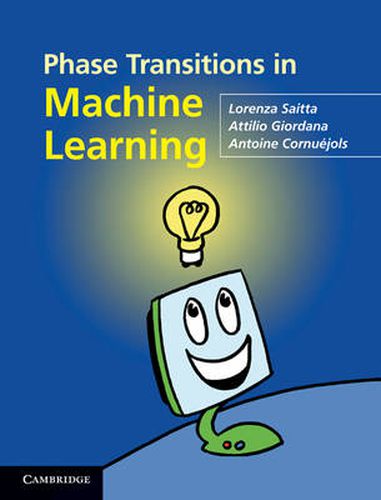Readings Newsletter
Become a Readings Member to make your shopping experience even easier.
Sign in or sign up for free!
You’re not far away from qualifying for FREE standard shipping within Australia
You’ve qualified for FREE standard shipping within Australia
The cart is loading…






Phase transitions typically occur in combinatorial computational problems and have important consequences, especially with the current spread of statistical relational learning as well as sequence learning methodologies. In Phase Transitions in Machine Learning the authors begin by describing in detail this phenomenon, and the extensive experimental investigation that supports its presence. They then turn their attention to the possible implications and explore appropriate methods for tackling them. Weaving together fundamental aspects of computer science, statistical physics and machine learning, the book provides sufficient mathematics and physics background to make the subject intelligible to researchers in AI and other computer science communities. Open research issues are also discussed, suggesting promising directions for future research.
$9.00 standard shipping within Australia
FREE standard shipping within Australia for orders over $100.00
Express & International shipping calculated at checkout
Phase transitions typically occur in combinatorial computational problems and have important consequences, especially with the current spread of statistical relational learning as well as sequence learning methodologies. In Phase Transitions in Machine Learning the authors begin by describing in detail this phenomenon, and the extensive experimental investigation that supports its presence. They then turn their attention to the possible implications and explore appropriate methods for tackling them. Weaving together fundamental aspects of computer science, statistical physics and machine learning, the book provides sufficient mathematics and physics background to make the subject intelligible to researchers in AI and other computer science communities. Open research issues are also discussed, suggesting promising directions for future research.